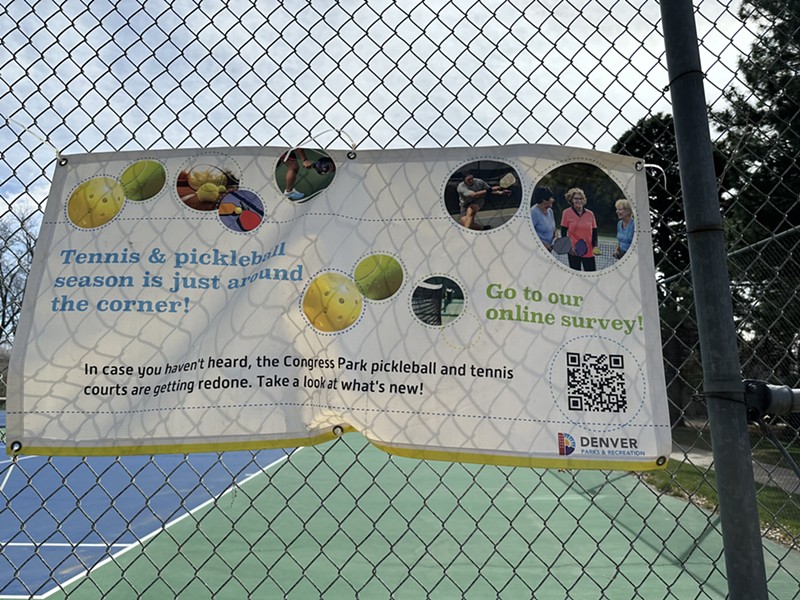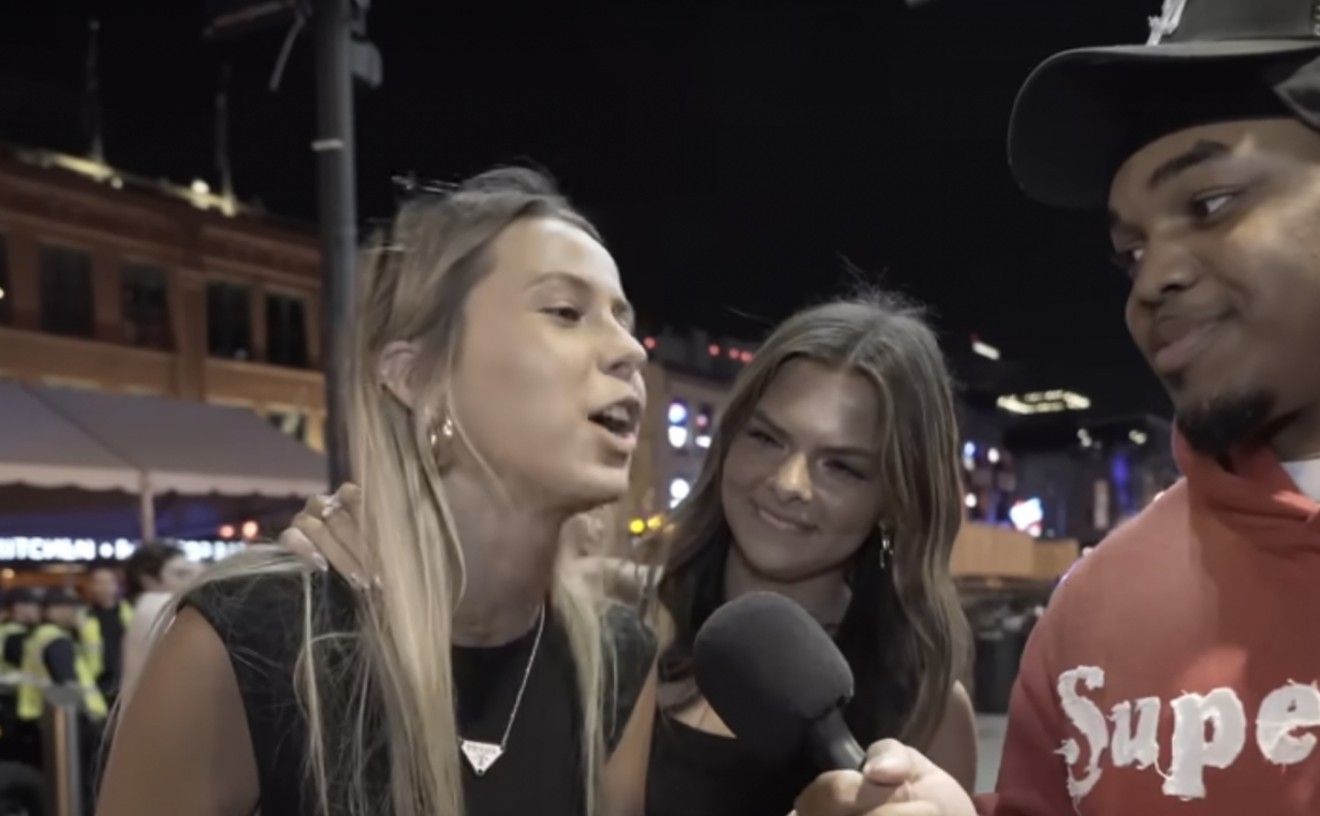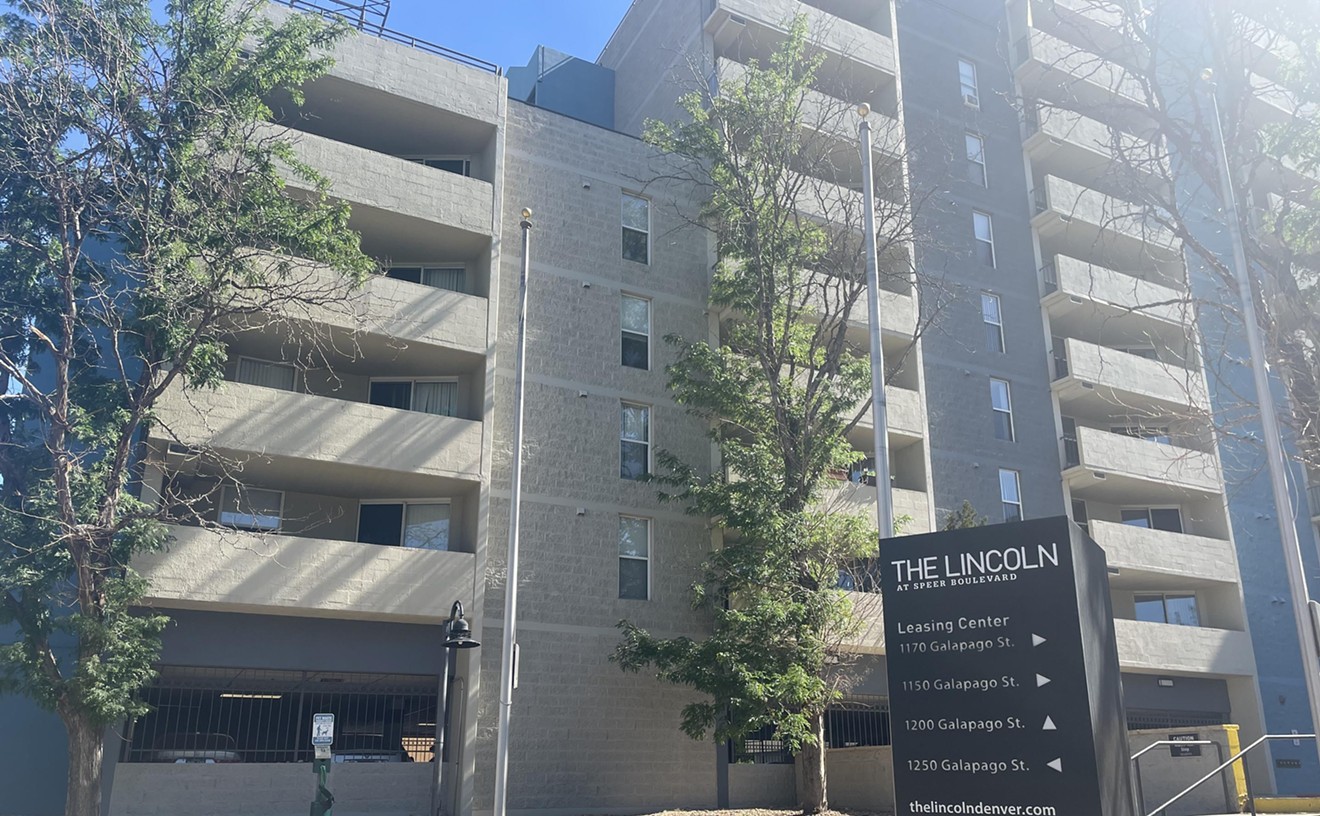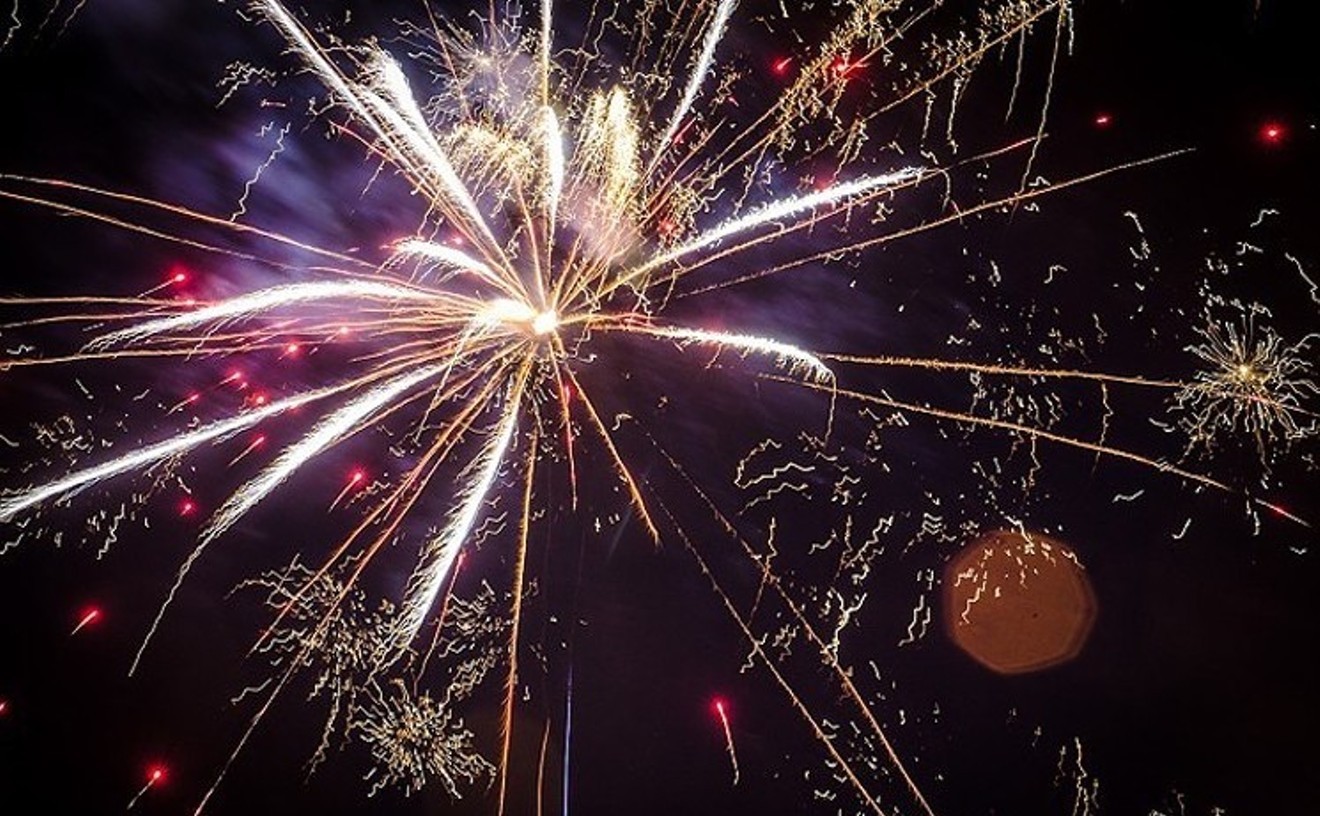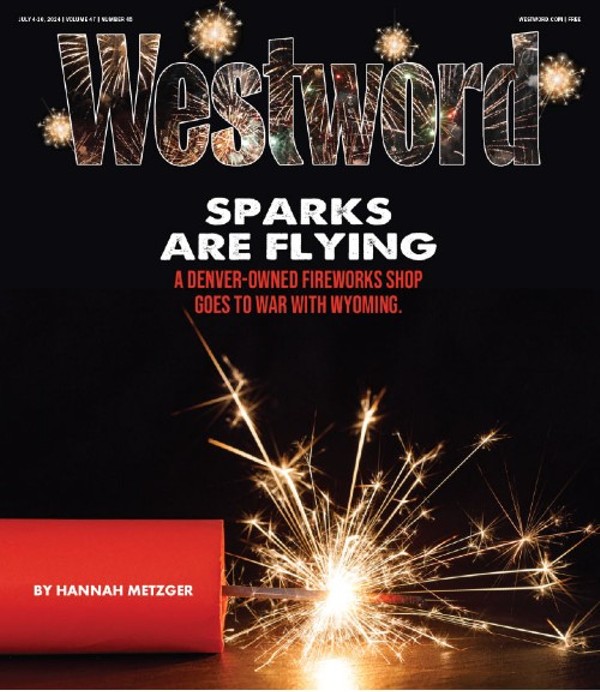Hoskins asked for the appeal to be placed on the Parks & Recreation Advisory Board's official agenda for its meeting tonight, May 10. But the PRAB turned down that request.
"Unfortunately, it is not in the authority of PRAB as an advisory board to the city agency to hold an appeal hearing on a decision made by Denver Parks & Recreation," PRAB Chair Chandi Aldena-Somerville wrote in an email to Hoskins late on May 9. "PRAB makes recommendations to DPR about topics related to the department; however, the result will only be recommendations presented to DPR for their consideration, with the agency having the final decision-making authority."
Aldena-Somerville, who was appointed to the PRAB by Denver City Council rep Robin Kniech, noted in her response that concerned pickleballers could still participate during the public-comment section of the PRAB meeting.
Hoskins and the pickleball support group plan to show up. And they won't stop there, as they "continue to object to the arbitrary actions of Denver Parks & Recreation," says Hoskins.
"We want the new mayor to appoint a responsible and conflict-free executive director of a $500 million Department of Parks & Recreation for a city that thrives on its outdoor public parks and spaces," she adds.
The appeal was spurred by the department's decision to not only shut down the pickleball courts at Congress Park, but scrap plans to move the playing area away from residents who’d been complaining about the noisy clanking of paddles and perforated pickleballs.
People who'd played at Congress Park are disappointed that what seemed like a solution for everyone is no longer on the table.
“At the eleventh hour — or really, the eleventh-and-a-half hour — they came up and said, ‘We're not doing any of it, and you can't play at Congress anymore,” says Debra McCartan, a certified pickleball coach who frequented the Congress Park courts and signed on to the appeal.
McCartan is one of the many pickleball players who now travel to Martin Luther King Jr. Park to play. On May 8, when the appeal was filed, residents rallied there to show their support for the game.
Brandt Tobler, another Congress Park player who was at MLK, says the lack of notice gave him pause because it felt like the city wasn’t giving pickleballers a chance to express their concerns. “We really didn't have time to form a rebuttal or anything,” Tobler says. “The pickleball community is pretty strong, and I think we could rally the forces if we had a lot of time to put something together.”
Hoskins's appeal is their way of rallying those forces.
The appeal asks for two public meetings: one about pickleball and its development in the city, and another about the conflict of interest between the department's deputy executive director, Scott Gilmore; his wife, Councilwoman Stacie Gilmore; and his brother’s company, Gilmore Construction, which has contracted with the city on numerous projects.
Pickleballers argue that the city is stifling a sport that builds health and community.
“I started two years ago when I dropped off my first daughter in college,” says Deborah Saint-Phard, a sports medicine physician. “I needed to pick up something to sort of fill that void. I'm a former Olympic athlete in the shotput. … I'm 58 now; it's been really fun for me to find joy again in sports and the socialization of it and the athleticism of it.”
Hoskins's appeal addresses the importance of pickleball, noting that it could help combat the loneliness that the U. S. Surgeon General recently described as a public health epidemic. McCartan points out that the unique community and "open play" option at Congress Park — where people didn’t have to make plans or know anyone in advance to be able to pickle with others — was a big factor in making residents feel less lonely.
“It was a place that was central in so many people's lives, and it afforded them, and all of us, a place to go that’s centrally located and felt safe,” she says. ”I feel mostly bad for the people who may rely on public transportation or bicycles who have nowhere to go now and lived within a few miles of Congress.”
Patrick Wilhelm has been playing at Congress Park since before the pandemic and says he lives “just a song-and-a-half” walk from the park. Although he wasn't always comfortable with what he describes as Congress's growth from a neighborhood park to more of a regional one, it was still his safe place.
“It was a sanctuary,” he says. “I would walk over there and just see my friends and it was fantastic.”
Now, Wilhelm often heads to MLK Park with others from the community who originally met at Congress Park. Because of pickleball, he's friends with people in different age groups and from more walks of life than he was before he started playing.
“My friend group definitely diversified,” he says.
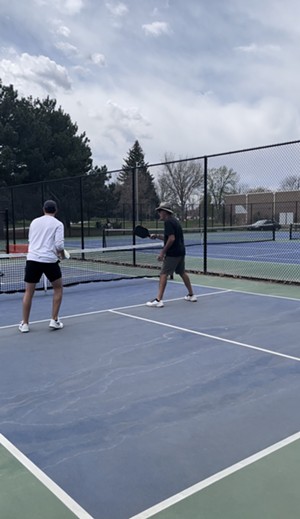
The pickleball courts at Martin Luther King Jr Park are popping while the tennis courts sit empty.
Catie Cheshire
Wilhelm signed on to the administrative appeal. The fact that people will play pickleball wherever they can shows a need for the city to invest in the sport, rather than just shut it down in places where it's caused issues, he says. “They're the ones who built the courts,” Wilhelm says of Parks & Recreation. “That’s fantastic. We have a beautiful city, and I think we can work together.”
The parks department points out that people can do that through a new Pickleball Planning & Advisory Group.
Wilhelm points out that outgoing Mayor Michael Hancock championed a “progressive and modern Denver” in his last campaign. Pickleball is one of the modern amenities the city could use to its advantage, he says.
Cities such as Austin and Tempe are leveraging pickleball by putting large facilities close to downtown, notes pickler Alan Pfeiffer.
Pfeiffer never played at Congress Park, but he was playing at the Central Park Recreation Center the day his friend Arslan Guney drew pickleball guide boxes on the court there.
Guney was booked into jail and criminally charged. He eventually worked out a deal with the city that reduced his initial penalty of over $10,000 to $5,000.
“They way overreacted, is my feeling,” Pfeiffer says. “I don't know that much about the Congress Park situation or why they lost their courts, but it does seem like for some reason the parks department doesn't like pickleball.”
The conflict between Guney and the department is part of the appeal, too. It notes that the Sharpie marks Guney had made were removed last fall without the need for an expensive resurfacing of the courts — which was the reason Guney was fined $5,000.
After the Central Park Recreation Center served as an emergency shelter for migrants this winter, the floor did need to be resurfaced. In February, pickleballers asked Parks & Recreation and the mayor’s office to create striped lines for pickleball, along with basketball and volleyball, when it did that resurfacing. Guney’s $5,000 could help with the expense, they said. The city refused the request.
“On February 19, 2023, Executive Director Haynes issued a Directive that DPR would not place Pickleball lines on Central Park Gymnasium floor for the 6 indoor PB courts for the senior citizen community that plays three times per week,” the appeal says. “DPR arbitrarily declared that it would be dangerous and a conflict to other sporting activities to have too many lines.”
The appeal lists that act as one of many arbitrary decisions that seem biased against pickleball. Ultimately, the picklers just want a seat at the table...and a spot on the courts.
“We just want to play pickleball, and we want to play together,” concludes Saint-Phard.

